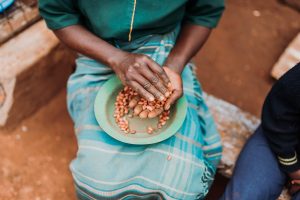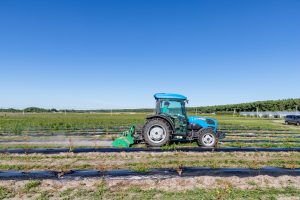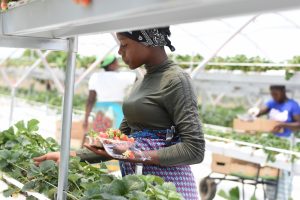How a Pandemic Impacts Food Around the World
Times of crisis usually result in shortages.
And COVID-19 has been no exception. In the United States, among other things, it was toilet paper. But in other countries around the world, it’s food.
And while toilet paper has returned to the shelves of our supermarkets and big box stores, food isn’t as quickly reappearing in developing countries. It’s difficult to comprehend how something this basic and essential can be impossible for some people around the world to access. But WORLD magazine helps explain how this crisis played out—
Major world economies slowed to a crawl.
Supply chains in developing countries faltered.
Access to medical services became strained or impossible.
Closed borders and limited travel disrupted humanitarian shipments.
Mandatory curfews and quarantine forced community food markets to shut down.
School closures eliminated many students’ only consistent meal-source.

Hunger Around the Globe
Here are some realities to consider as World Food Day approaches—
According to the United Nations, starvation is threatening the lives of tens of thousands of children around the globe this year.
The Lancet recently published a research journal predicting wasting among children under 5 globally will increase by 14 percent.
UNICEF reports that 368.5 million children across 143 countries who normally rely on school meals for a reliable source of daily nutrition must now look to other sources.
UNICEF also estimates that up to 66 million children could fall into extreme poverty as a result of the crisis this year, adding to the estimated 386 million children already in extreme poverty in 2019. And research shows that children in extreme poverty are at an exponentially increased risk of experiencing food scarcity.
When We Work, We Eat
These statistics are hard to swallow. And yet, they shouldn’t come as a shock. Bob Reader says it best—
A world on ‘lockdown’ can’t work. If we don’t work, we don’t eat.

But how we respond can show a dark work what it looks like to live out the pandemic without fear, through our eternal hope in Christ.
Lifesong Farms began with two main goals: to create stable job opportunities and to generate revenue to pour back into local ministries. But with shortages skyrocketing, God is using the farms as a critical food source for the communities we serve. Lifesong Farms’ work is essential, not only because the government said so, but because when we work, we eat.
In 2019, Lifesong Farms produced 343,000 lbs of berries and is on track to produce 435,000 lbs of berries in 2020. Their harvests have helped feed many struggling communities. And the jobs they create directly impact over a thousand people.

Feeding More Than Bodies
While feeding people with physical food is essential, feeding their souls with spiritual food is just as—if not even more—necessary. Now more than ever, people are looking for something rich and satisfying worth living for.
In a message about world hunger, John Piper shares—
“It may be that God is allowing physical hunger to ravage our globe in order to awaken his church to the worldwide (and local) ravages of spiritual starvation… Perhaps God is touching us this way in order that we might feel the horror of spiritual starvation when our heads declare: Do you weep over the suffering of these bodies now?—How much more, then, should you weep over the suffering of soul and body in eternity!”
Not only does Lifesong Farms provides stable employment, but each of our workers has the opportunity to join a Bible study and be involved in a Christian community.
Beyond the farms, with support from people like you, our global teams have delivered over 1 million meals to at-risk children and families across the globe. And with each meal, they shared the Good News of Jesus.
2 Things to Do in Honor of World Food Day
God is already providing solutions for this crisis. You can join where He’s working by…
1. PRAYING
Join us in praying…
- for each food market and school to safely reopen.
- for God to multiply the loaves and fishes brought before Him, feeding people from whatever meager portions they have.
- that more people would find the true satisfaction that comes from feasting on God’s truth in the Gospel.
2. SUPPORTING GLOBAL AGRICULTURE
Food drops are absolutely essential when crises hit quickly. But it’s important to have sustainable plans in place so communities can experience transformation and reap long-term benefits. Supporting Lifesong Farms is a simple way to make a long-term impact on vulnerable children, families, and communities.